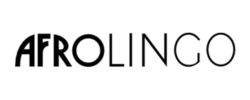If you’re already considering African languages translation as part of your market strategy, you’re ahead of the curve. But with over 2,000 languages spoken across the continent, it’s hard to know which ones truly matter for your business. Should you stick to English or French? Or go local?
This guide breaks it down region by region, giving you a clear, practical roadmap to understand exactly where — and how — African languages translation makes a real impact.
Languages in North Africa
According to the UN Statistics Division, North Africa consists of seven countries: Algeria, Egypt, Libya, Morocco, Sudan, Tunisia, and Western Sahara.
While Arabic is the sixth most spoken language in the world, it’s Africa’s largest language. In fact, North Africa is often lumped together as “Arabic-speaking”. Arabic is the dominant language, spoken as a native language by over 200 million speakers in the region.
And while Modern Standard Arabic (MSA) is dominant in official communication, the linguistic reality is much richer and more complex. There are regional dialects, like Egyptian Arabic, Maghrebi Arabic, and Sudanese Arabic. These dialects differ significantly and are often mutually unintelligible across regions.
In addition to Arabic, French also has an impact in the region, where countries such as Morocco, Algeria, and Tunisia speak the language. Though French is not the official language in these countries, it is widely spoken due to France’s colonial legacy.
Languages in West Africa
Western African countries include 17 countries, which are:
- Benin
- Burkina Faso
- Cape Verde
- Côte D’Ivoire
- Gambia
- Ghana
- Guinea
- Guinea-Bissau
- Liberia
- Mali
- Mauritania
- Niger
- Nigeria
- Senegal
- Sierra Leone
- Togo
West Africa is one of the most linguistically diverse regions on the continent, home to over 500 languages across three major language families: Niger-Congo, Afro-Asiatic, and Nilo-Saharan.
- Niger-Congo Family: This is the predominant language family in West Africa, including widely spoken languages such as Yoruba, Igbo, Fulfulde/Pulaar, Akan, and Wolof.
- Afro-Asiatic Family: Represented primarily by Hausa, which serves as a lingua franca in many parts of West Africa, across northern Nigeria, Niger, Ghana, and parts of Chad and Cameroon
- Nilo-Saharan Family: Though less widespread, languages from this family are present in parts of the region.
- Colonial languages are also present in the subregion, where French is the most widely spoken colonial language in West Africa, followed by English and Portuguese.
Languages in East Africa
Swahili is the lingua franca of East Africa. Swahili, also known as Kiswahili, stands out as one of the most widely spoken African languages, with over 100-150 million speakers across East Africa. It’s an official language of Kenya, Tanzania, and Uganda, and a working language of the African Union.
Given its widespread use, Swahili offers businesses a powerful tool to reach millions of consumers across borders. Brands localizing content and services in Swahili gain a competitive edge in retail, media, and digital services.
English, however, is the official language, where Article 137 of the treaty for the establishment of the East African Community stated:
“The official language of the Community shall be English. Kiswahili shall be developed as a lingua franca of the Community.”
So, since English remains the language of formal business, higher education, and international trade, especially in Kenya and Uganda, companies should balance English with African languages translation to maximize reach and authenticity.
There’s also Amharic, which is the official working language of Ethiopia, the second-most populous country in Africa, with over 126 million people (World Bank, 2023). As the primary language of government, education, and media, Amharic holds immense political, cultural, and economic significance in the Horn of Africa. It’s also one of the most in-demand languages in African languages translation.
Additionally, Uganda houses over 40 indigenous languages, including but not limited to Luganda, Ateso, and Runyoro. Also, Bantu languages play an important role in the subregion as in Uganda, Burundi, and Rwanda.
Languages in Southeast Africa
The most prominent language in the region is English, followed by Portuguese and other indigenous languages, including Tswana, which is an official language in South Africa and Zimbabwe. South Africa is known for its language diversity; it has 12 official languages.
European Languages and Their Impact on African Languages Translation
Due to colonization in the past, European languages have become a big part of many African countries. These languages include:
English
English is the international language of communication, being the second most spoken language in the world after Chinese. The language is spoken in 27 out of 54 African countries, with varying levels of proficiency. The prevalence of English is due to former British colonization.
| The largest English-speaking countries in Africa | |
|---|---|
| Country | Population |
| Nigeria | 198 million |
| Ethiopia | 110 million |
| South Africa | 58 million |
| Tanzania | 60 million |
| Kenya | 50 million |
French
The French language has 327 million global speakers, with over half of them (167 million) located in Africa. This is due to the French colonization in the 19th and early 20th centuries, conquering West, Equatorial, and North Africa.
Portuguese
Portuguese is an official language in six African countries:
- Angola
- Mozambique
- Guinea-Bissau
- São Tomé and Príncipe
- Cape Verde
- Equatorial Guinea
With the exception of Equatorial Guinea, these countries were Portuguese colonies for almost 450 years. Angola is the second-largest Portuguese-speaking country on a global scale, following Brazil.
Afrikaans (Derived from Dutch)
Afrikaans is considered a daughter language of Dutch. The language originated in the 17th century from a Dutch dialect spoken by colonists in the Cape Colony.
These colonists were mainly Dutch, but they also included Flemings, Poles, Germans, and French. They eventually learned Dutch and referred to themselves as “Afrikaners.”
The European Languages’ Impact on African Languages Translation
While European languages are official languages in many countries, African languages have their unique impact and influence. These maps show a stark difference between the multilingual regions studied (A) and the language diversity in each country (B).
African languages translation is underappreciated. The continent has over 2,000 languages, but only 22 African languages are currently supported by major global brands.
Why Opt For African Languages Translation
According to studies, addressing consumers in their own language brings them closer to home.
Plus, 80% are more eager to buy products when they’re sold in their mother tongue, and yet 90% of African brands still stick to English and French.
Why is that, though?
- Cultural Connection
African languages carry meanings shaped by history, traditions, social norms, and local realities. Culturally informed African languages translation captures these deeper cultural nuances, demonstrating respect and understanding of African audiences.
This resonates emotionally with them. Plus, this authenticity is increasingly valued by African consumers who seek brands that truly understand their identity
- Establishing Trust & Authenticity
While English, French, or Portuguese may serve as entry points, real brand trust is built when businesses speak to people in their own languages.
The majority of the world, not just Africa, speaks English, but fewer people speak local or indigenous languages. With that, your consumer will feel special and heard when you speak their language. It signals respect, relevance, and long-term commitment. It tells customers, “We see you. We understand you.”
- A Smart Strategy For Market Expansion and Engagement
Research consistently shows that people trust and prefer to buy from brands that speak their language, especially when messaging is culturally adapted, not just translated.
Africa is no exception. Authentic language use can be the difference between a campaign that connects and one that misses the mark. It moves beyond surface-level engagement and achieves real resonance. The kind that builds brands and ensures their impact in new territories, driving customer acquisition, loyalty, and competitive differentiation.
It’s Your Time to Stand Out in Africa
African languages translation can be overwhelming, but not with Afrolingo. We are well-versed in the African culture, with native translators who will help your global brand establish an impactful presence across Africa’s regions.
Let’s make your expansion seamless. Talk to our experts today and discover how AfroLingo can help your brand connect, engage, and grow across Africa.
FAQs
- Which is the most spoken language in Africa?
Swahili and English are widely used as lingua franca across many African countries. However, Arabic is the most spoken native language in Africa, with over 150 million native speakers, particularly in North Africa, where it is an official and dominant language.
- Is English or French spoken more in Africa?
French is the official language in more African countries, spoken across 29 nations. 21 of those countries are known as Francophone countries, where French is either their official language or one of their other official languages. However, English is more dominant in heavily populated countries such as Nigeria, Kenya, and South Africa.


